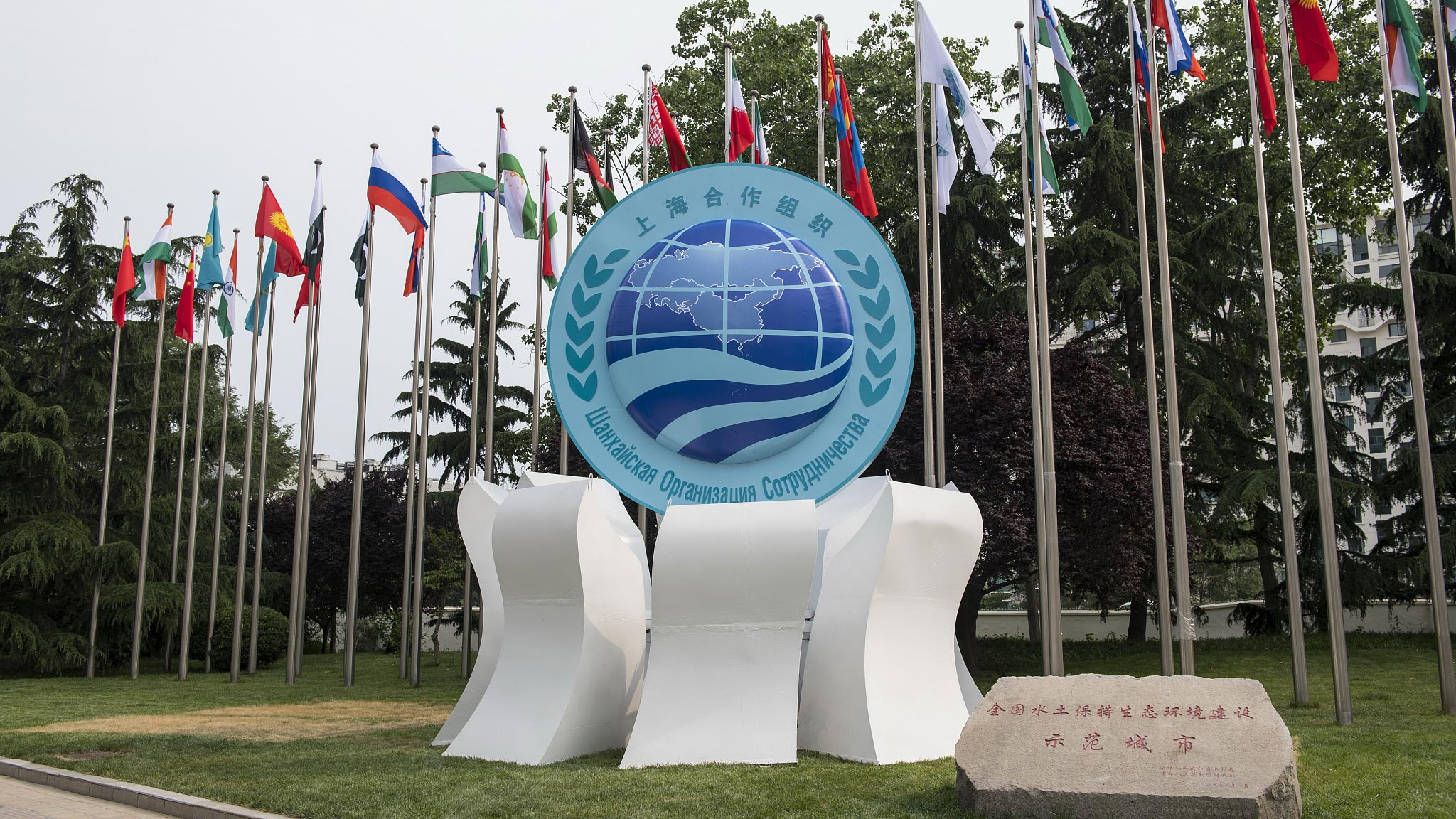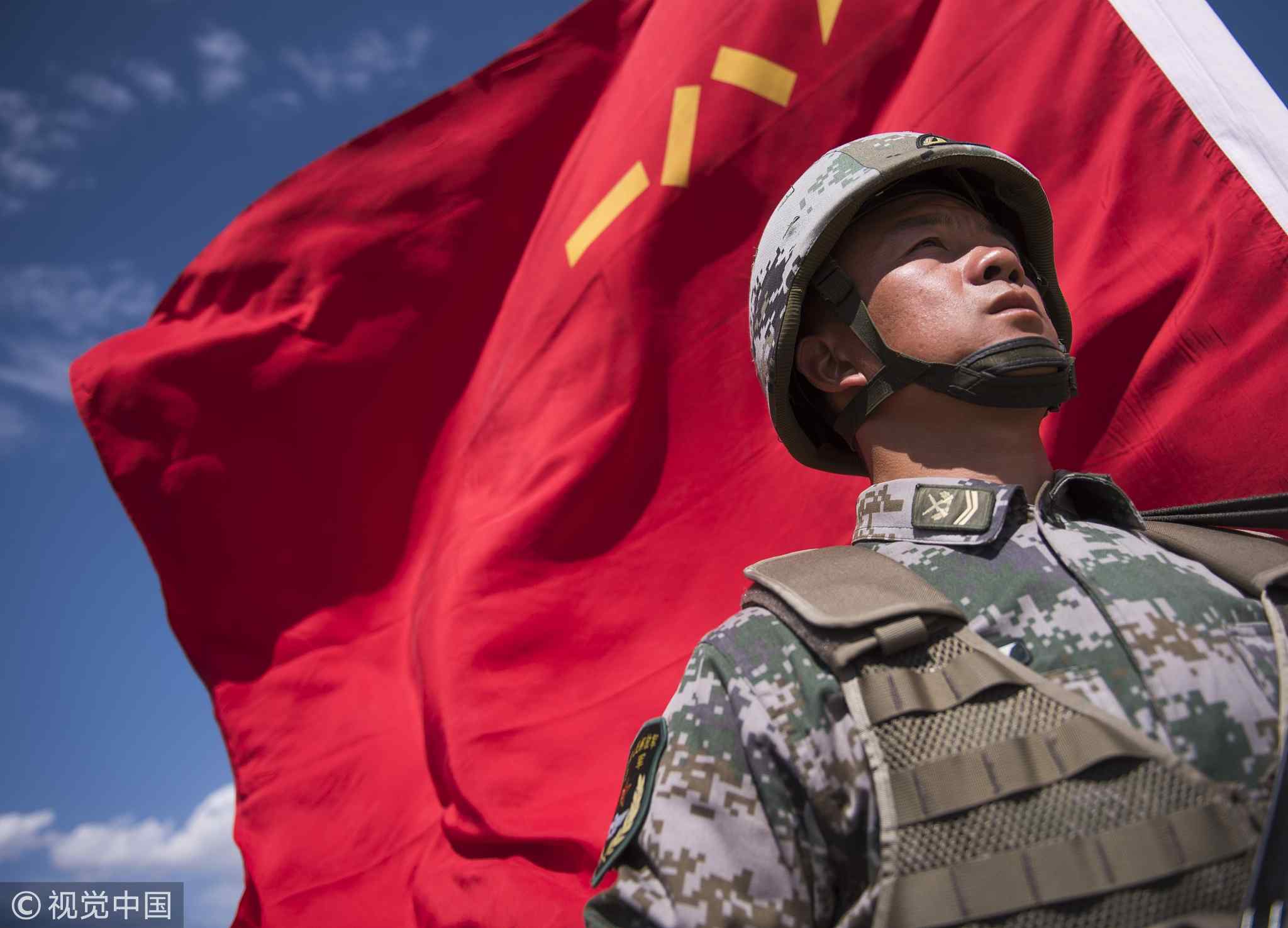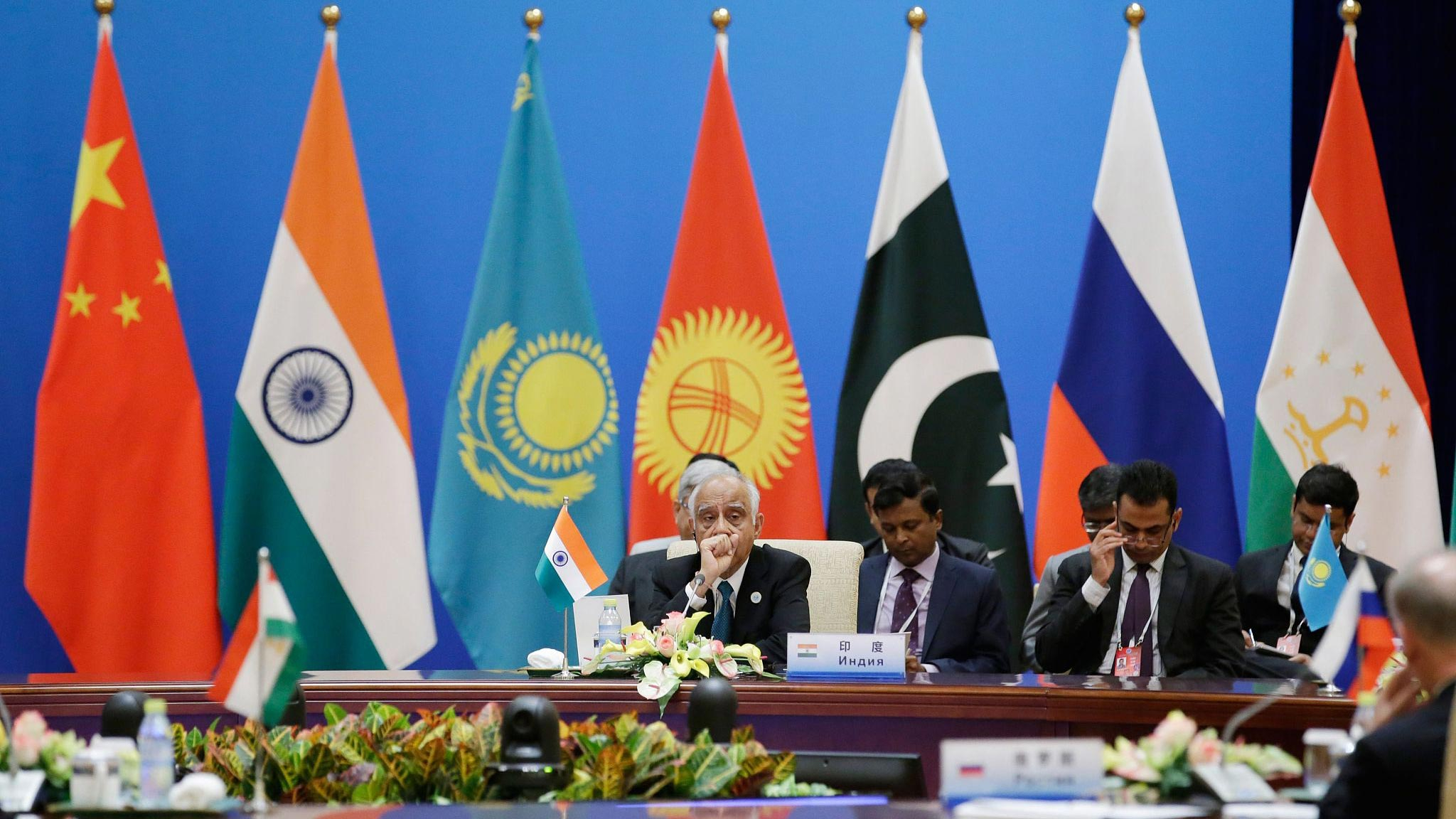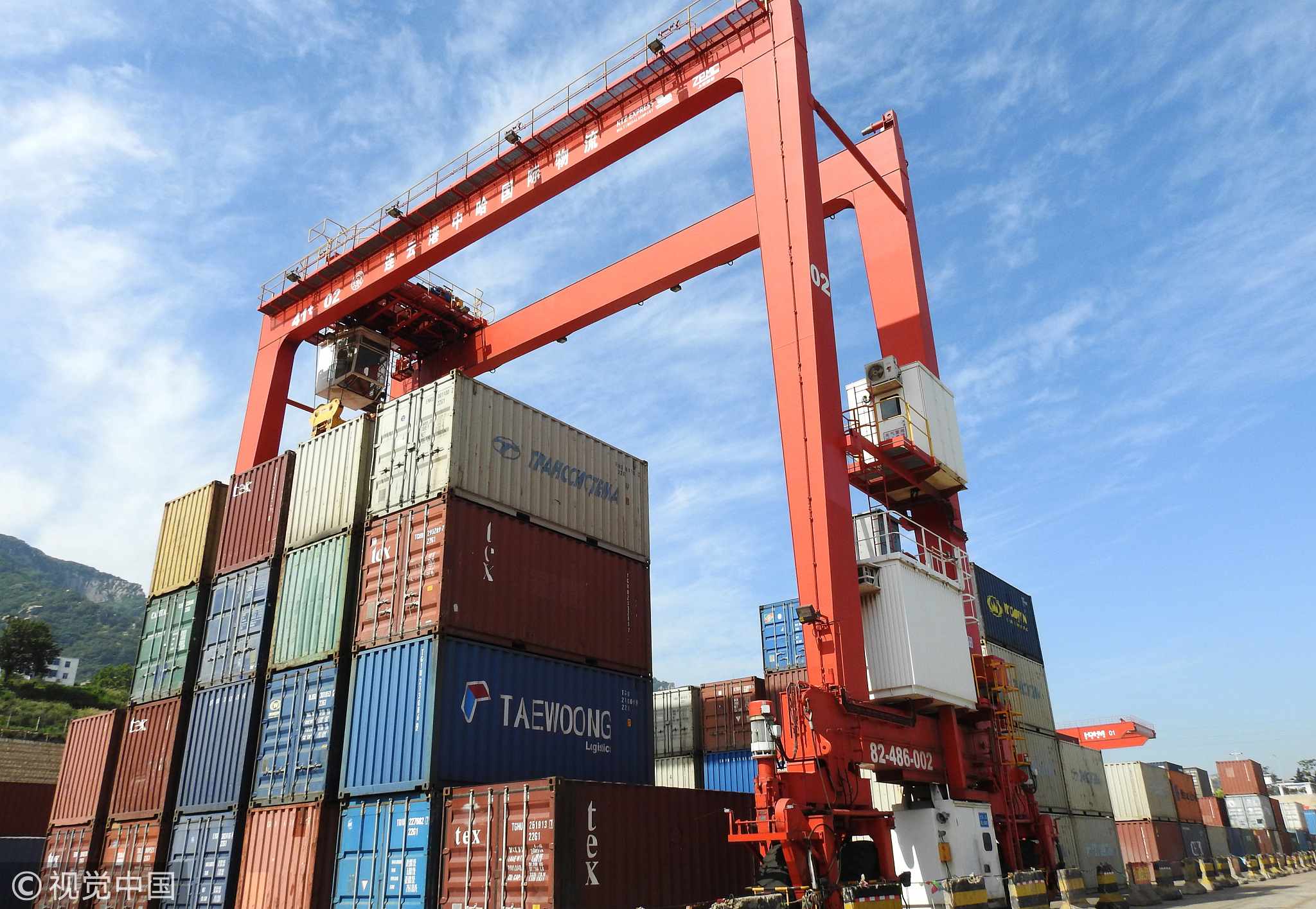
Opinions
17:58, 07-Jun-2018
Alexander Lukin: Looking ahead after 17 years of SCO
By Wang Xiaonan
01:30

The forthcoming Qingdao summit of the Shanghai Cooperation Organization (SCO) is hailed as a milestone in the history of the mushrooming regional organization. What achievements has it scored in the past 17 years? What's its future development path? How will it better coordinate with other regional organizations and initiatives in the fluid world of geopolitics?
CGTN reporter Wang Xiaonan sat for a talk with Alexander Lukin (Lukin), Vice President of Russia’s Diplomatic Academy, Director of the Center for East Asian and SCO Studies at Moscow State Institute of International Relations of the Russian Ministry of Foreign Affairs, and Cofounder of the SCO Forum of Experts, to seek answers to these questions.
CGTN: What achievements do you think the SCO has made over the past 17 years in addressing a host of issues like flagging economy, security threats deriving from porous borders and terrorism in and surrounding Afghanistan?
Lukin: SCO members mainly cooperate in three parts: security, economy, as well as soft power initiatives in education, culture, science, and sports. So far, the greatest progress has been made in security cooperation, notably in the fight against terrorism. The Regional Anti-Terrorist Structure headquartered in Tashkent has been playing an instrumental role in knitting SCO member states together to fight against the three evils of terrorism, separatism and extremism through the exchange of information.

Serviceman involved in the Peaceful Mission 2016 anti-terrorism exercises by the SCO in Kyrgyzstan. /VCG Photo
Serviceman involved in the Peaceful Mission 2016 anti-terrorism exercises by the SCO in Kyrgyzstan. /VCG Photo
Between 2002 and 2017, the SCO launched 14 joint military exercises in combatting the three evil forces: terrorism, extremism and separatism. Cooperation in this endeavor has proved to be quite effective in safeguarding peace and stability in border areas across the region.
In contrast, economic interflow is the most underdeveloped part. Actually, there has been no multilateral economic cooperation within the SCO framework.
Collaboration in science, culture, education, and sports is kind of in the middle. We established the SCO Network University seven years ago, greatly facilitating academic exchanges. In addition, art exhibitions, cultural and sports events have been launched from time to time.
CGTN: Given its past accomplishments, what should the SCO, as an international consortium, attach more importance to in the next few years?
Lukin: Political cooperation based on security fortification is quite developed, so the SCO – a multi-dimensional regional organization – is expected to engage more in ratcheting up multilateral economic cooperation as enormous bilateral cooperation has been in full swing over the years. Moreover, the cooperation should not be limited within the SCO but eye more exchanges with countries outside the organization under various global or regional initiatives.
We need to create some financing mechanisms, like an SCO bank. We've been talking about it for at least a decade but still failed to realize it given divided visions among member states.
00:57

CGTN: The SCO has included all major Eurasian countries, with Pakistan and India becoming full members last year. Turkey, a member of NATO, was granted dialogue partner status in 2012 and its President Recep Tayyip Erdogan has an eye on joining this club, which he believed to be "more powerful" than the European Union. It's fair to say that the SCO is standing at a crossroads. Where is it headed given wider divergence among its members, observers and dialogue partners?
Lukin: The SCO needs to organize itself in a new form with the inclusion of India and Pakistan, who hold different positions on a slew of issues, notably the perennial territorial disputes.
Turkey, by now, is just a dialogue partner. In gaining membership to the SCO, the country may risk losing its NATO status. By then, the SCO will go beyond a non-Western organization.
But it will probably be harder for SCO members to reach consensus in future controversies. We shall wait and see how the decision-making mechanism within the SCO architecture will go on.
And in the future, another country may expand the SCO membership – Iran, which has formally filed the application. The Middle East nation could not be accepted over the past few years because it’s under UN sanctions, according to the Rules of the SCO. But now with the sanctions being lifted, Iran can also become a member of this organization in the near future.

Logistics base of a China-Kazakhstan cooperation project, in Lianyungang, east China's Jiangsu Province, on May 31, 2018. /VCG Photo
Logistics base of a China-Kazakhstan cooperation project, in Lianyungang, east China's Jiangsu Province, on May 31, 2018. /VCG Photo
CGTN: How will the SCO engage in healthier interaction with other global and regional organizations and initiatives to contribute to global governance?
Lukin: Actually, the SCO cooperates quite well with several other regional organizations. It has regular interactions with the United Nations and several other international organizations. With ASEAN, it has clinched several documents, which facilitates Southeast Asian nations in better engaging Central Asian or Eurasian countries.
In pioneering a bigger economic orbit, the SCO plays a pillar role in the future Eurasian pattern. And a mechanism is being developed for aligning the Eurasian Economic Union with China's Belt and Road Initiative (BRI).
And it's true that China has differences with other SCO countries in launching trade cooperation. It's important that they really understand what each other needs and develop common plans in a way that benefits all.
It's worth noting that some countries, not just within the SCO, are playing an anti-China card, not stemming from the BRI ambitions but out of internal political struggles. We must stay vigilant against this phenomenon.
The main thing here is that SCO members are friendly countries, and for all kinds of economic disputes or controversies, they can find a solution.
(Videographer: CGTN's Geng Zhibin)

SITEMAP
Copyright © 2018 CGTN. Beijing ICP prepared NO.16065310-3
Copyright © 2018 CGTN. Beijing ICP prepared NO.16065310-3